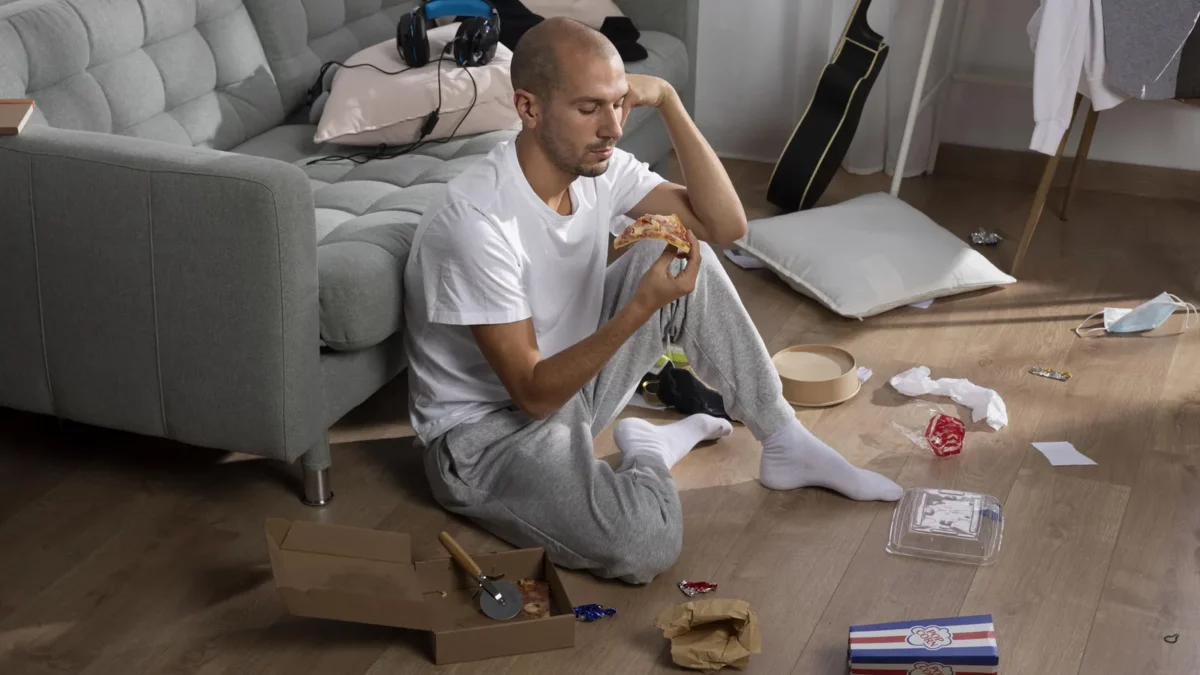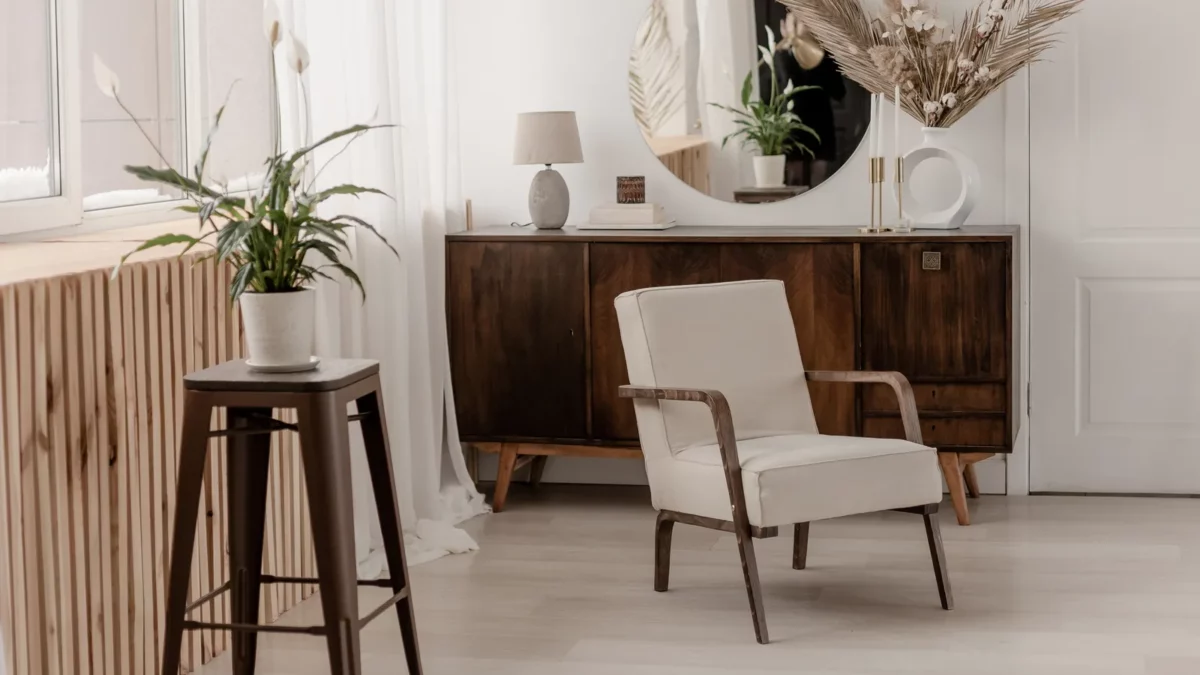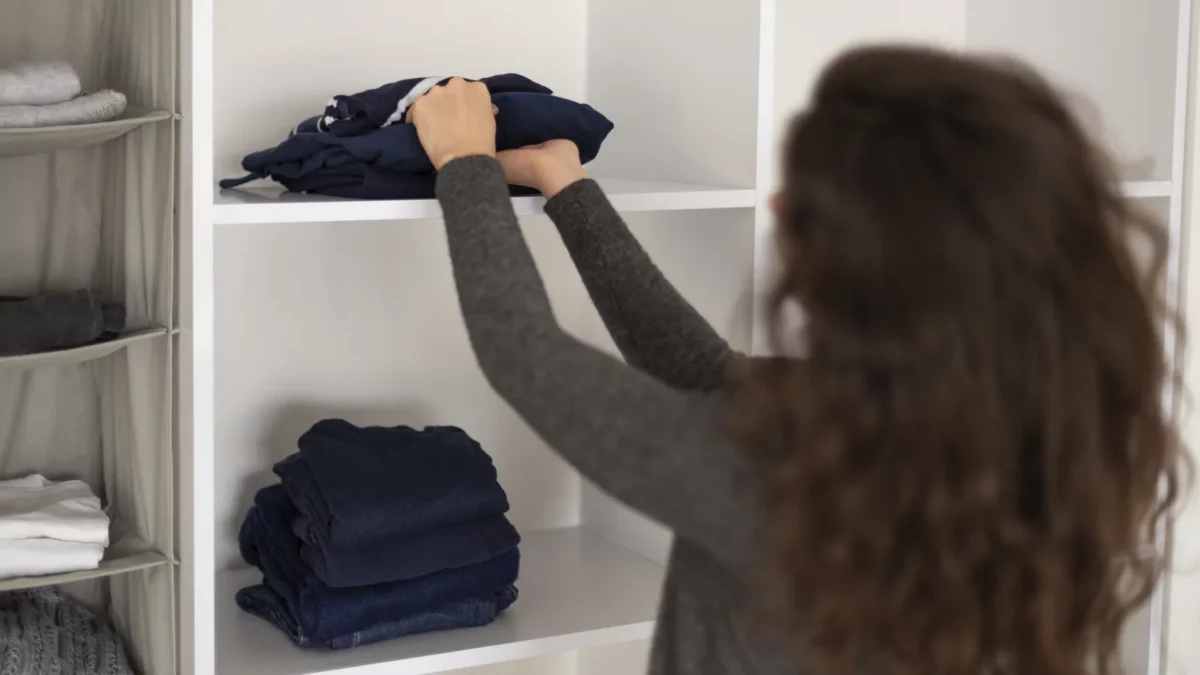Have you ever looked around your home and thought, “Why do I have so many things, and why is my brain constantly replaying dog videos?” You are not alone.
Our homes and minds are collection points for information, ideas, and clutter. We live in filth and stress when we don’t address the chaos. Welcome to the clutterless corner of the internet, where we’ll help you declutter your home and mind.
Why Is Decluttering Your Home and Mind Important?

Imagine your home is as disorganized as an attic filled with age-old random junk no one wants. You can’t find your keys and always pray not to knock out your toes when moving around your home. You never seem to find your missing socks, and now and then, you run into your old junk.
Your mind is a mental manifestation of your physical space. When your living space looks crumbling, your mind mirrors it. Clearing the physical clutter helps you create a space for inspiration and creativity. Additionally, decluttering makes cleaning up easier since there’s no extra junk to take care of.
How Long Does It Take To Declutter?

Getting your life in order is a challenging task. Saying it would only take a week to get your life in order would be a lie. You shouldn’t put a time stamp on your decluttering journey. If you don’t want to relapse and let the junk back into your home and mind, you must take your time. The first step is categorizing your decluttering journey into two and making a short-term goal checklist.
The checklist below will help you track your progress and motivate you to keep going.
Step 1: Have a Clear Vision

Coming up with a vision will help you stay motivated as you declutter. Answering the following questions will help you come up with a clear idea:
- Why do you want to declutter your home?
- What matters most to you in your home?
- What are you hoping to get from simplifying your life through minimalism?
- How does your living space make you feel?
- What do you want minimalism to look like for you?
Step 2: Create a Decluttering Plan

A plan will help you know what to do next. Additionally, as you plan, you will have to think about all the hurdles you might face as you declutter, making it easier to get through them.
Step 3: Clear Out the Clutter First

Getting rid of the surface clutter will make your life easier and reduce the workload. Go through every room and table out the junk, garbage, and unused items.
Step 4: Clean Out Flat Surfaces

The easiest way to boost your motivation is by clearing out the flat surfaces. Clean surfaces automatically make the home appear tidier and more put together. These include nightstands, bathroom counters, tables, and the kitchen counter.
Step 5: Declutter the Easiest Spaces or Rooms

Ticking one room or space out of your decluttering checklist will help you build momentum for the rest of your home. Smaller areas like cabinets, bathrooms, closets, or the pantry seem easy to start from. Start decluttering your closet, and you’ll see how the rest goes naturally!
Step 6: Clear Out Your High Priority Area

Tackling the high-priority areas will be hard work. However, when done, you will have more motivation, time, and less stress to handle the rest of the home.
5 Tips on How to Declutter Your Mind

Does your brain feel like a junk drawer with music lyrics from the 90s, ideas, worries, business plans, thoughts, and memes? Now that your home is a haven, it’s time to focus on your mind. Let’s now dive into freeing up your mind –
Tip 1: Write Notes

Taking down notes helps release your mind from the stress of retaining all your ideas and thoughts. Decluttering your thoughts and ideas by writing them down will give you enough mental capacity to create new ideas. You can use a pocket notebook or download a note-taking application like OneNote or Google Keep.
Tip 2: Learn How To Deal With Overwhelming and Negative Thoughts

We all get overwhelmed with the world’s weight, and thoughts flood. Instead of focusing on the negativity, look for a way to release it. It could be through sharing with people you trust, therapy, or simply writing them down.
Tip 3: Stop Procrastinating

Are you guilty of holding off on working on tasks until the last minute? Procrastinating starts with not hanging and folding clothes after washing to only doing assignments on the submission date. Holding off on doing tasks creates a backlog, making it harder to complete tasks or reach your creative potential. Therefore, working on big and small tasks as soon as possible takes care of the mental overload and hoarding.
Related: 17 Solid Tips for Overcoming Chronic Procrastination
Tip 4: Start a Gratitude Lifestyle

Having a grateful spirit is motivating and relieving. We live in an answered prayer, and most don’t take the time to reflect and be thankful for their current state. Additionally, being grateful allows you to be present and stop worrying about the future. Being present helps the mind manage mental disorders like depression and anxiety.
Organize your day to add a morning and evening routine that includes gratitude. You could get a journal and list everything you are grateful for that day. Whenever you feel overwhelmed, the journal could help you focus on what matters rather than the negative thoughts.
Tip 5: Set Goals

Define clear short-term and long-term goals. It has to be YOUR goals. Knowing what you want to achieve can provide clarity and help you filter out distractions and irrelevant thoughts.